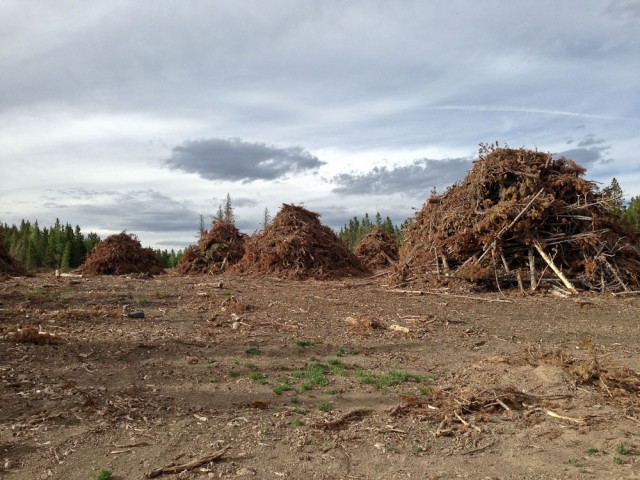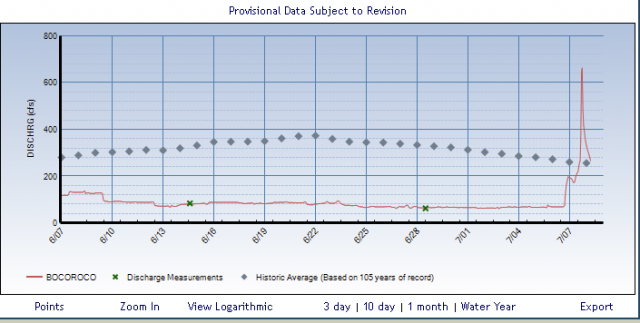Back in 2008…
I decided this town would be a good fit for a small town radio station, much like the one portrayed on the TV series Northern Exposure. Later my friend Daoine O’ became a DJ at the station near her small town. I got to see the studio and even trekked up a mountain side to the transmitter. I was inspired.
So I set out writing my congress critters, pleading with them to pass the bill that had been lingering for years in their committees. The bill was to reverse a law that stopped new LPFM stations from being authorized (long story, short). It took years for the bill to finally get passed in 2011 and signed by President Obama. Now the FCC is busy trying to make sense of the bill and adjust their rules accordingly.
Yar! Ahoy me hearties!
Unbeknownst to me, probably in 2010, a couple of people from town simply put together a studio, put up a pirate transmitter someplace and voila, they’re on the air and streaming. They’ve had in-studio guests and broadcast live from various venues in town. It has a local vibe to it. I admire them and the simplistic route they took to start a station without all of the bureaucracy and regulations of the government. They are not interfering with any other radio signals. They are polite pirates.
Is it a community radio station? Not quite. Members of the community interested in doing a radio show, can’t. Also, it’s only live on the weekends. As far as I can tell, weekdays are just pre-programmed with a playlist of music. I’ve tried contacting them, but haven’t received any replies.
Podcasting
At the beginning of the year, my friend Jacob asked for my help in setting up a podcasting studio in his home. We picked out equipment, set it up, tested it, and now I’m the recording engineer for the bi-weekly podcast Radio Golden. This was my introduction to podcasting in general and through him I was introduced to other podcasts to listen to. One of my favorites so far is Radiolab.
Last summer I started streaming my own weekly radio program called Road Trip. It’s not a podcast yet, you have to listen to it live on Friday evenings. To stream this program requires no bureaucracy or government approval.
Is anybody out there?
I wrote a letter to the local newspaper calling for people interested in starting a radio station to contact me. The response was lukewarm. I received about four replies, most of them wanting to have their own radio show. But no one seems very enthusiastic about trying to work through the bureaucracy of actually making the station a reality.
There is a lot that has to be done:
- A non-profit corporation has to be formed. Only a non-profit can apply for a LPFM community radio license. This involves writing up articles of incorporation, writing bylaws, and submitting various forms to the state, along with fees.
- I need to find people who are willing to serve on the board of directors of the non-profit, and they have to reside within 10 miles of the transmitter (a proposed rule the FCC is considering).
- An application has to be submitted to the IRS to be tax exempt, along with a fee.
- A preliminary site has to be selected for the transmitter, as well as a frequency. This will require permission from a landowner to to place the transmitter on the property.
- An application has to be submitted to the FCC, plus another fee. The window for accepting applications is usually very short, only a week long, and will occur this summer. Who knows when/if there will be another window anytime soon.
If the FCC application is approved, there is even a longer list of stuff that needs to be done, more applications, fund raising to pay for equipment, etc. If only four people responded to my call for volunteers, what’s fundraising going to be like?
Lying awake at night
I’m not the kind of person who likes bureaucracy. (I can’t even spell it.) I see the simplicity of using the internet as a means of audio transmission and I wonder if it’s the future. I ask myself, why do I want to jump through a bunch of hoops and pay a bunch of fees just to satisfy some romantic notion I have of radio? While I have some friends who are supportive of my radio station idea, I don’t know enough locals who are enthused enough to really bond over the idea, to keep the momentum going while getting through the bureaucracy. It needs to be a team effort and there is no team.
The alternative
If I scrap the traditional radio idea, I will also scrap the community radio idea. If I go with the internet transmission method, then I’m going to join up with my music geeking friends and create a station that is not tied to location. For all the fees I would have paid with submitting various government applications, I can buy each of them mics and mixers. That would be just as fun as my old romantic notion of radio.



